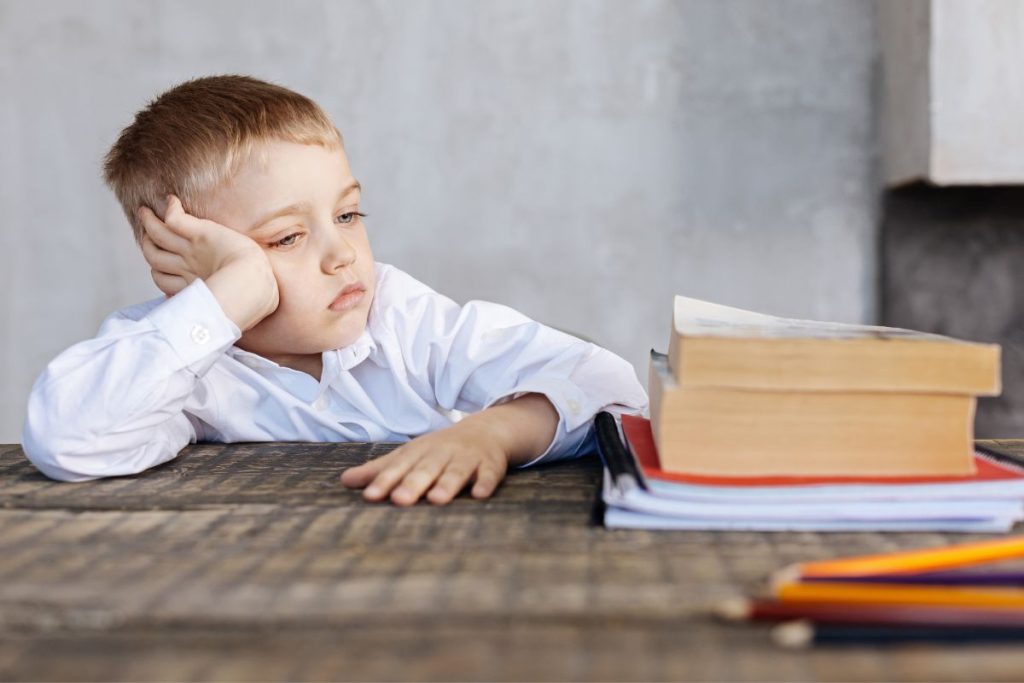The amount of after-school activities for kindergarten children can vary greatly depending on the resources available, the interests of the child, and the child’s ability to handle additional activities outside of school. However, a balanced approach would suggest one to two activities per week. This allows kindergarteners to explore new interests and develop social skills without feeling overwhelmed. Activities such as art classes, outdoor sports, or music lessons are common choices.
Factors to consider when deciding after school activities for kindergarten kids

Age and Developmental Stage:
Kindergarten children are typically between the ages of 5 and 6. This is a crucial stage in their development.
At this stage, they are still fine-tuning their fundamental skills. These could range from motor skills to basic cognitive processing abilities.
It’s also important to consider that they may not have the stamina for multiple activities. This is why it’s crucial to choose activities that are age-appropriate and not too taxing for them.
Individual Interests:
Understanding a child’s individual interests and passions is vital when selecting after-school activities. This is the first point for consideration.
Children, even at a young age, may already show a penchant for certain activities. Some may show a love for drawing, while others may have an affinity for music. In this case, art classes or music lessons would be suitable choices. By aligning activities with their interests, their engagement and motivation levels are likely to be high.
However, it’s also beneficial to introduce them to new experiences. This could mean signing them up for a sport they haven’t tried before or enrolling them in a science club. This encourages them to step outside their comfort zone and perhaps, discover new passions.
Ultimately, the goal is to strike a balance between stimulating their existing interests and fostering new ones. This approach not only keeps their after-school schedule exciting but also contributes to their holistic development.
Balancing Academic and Extracurricular:
Extra-curricular activities should be engaging and enriching, but it’s important to balance them with academic responsibilities. Kindergarten children need dedicated time for studies and homework to keep up with the school curriculum and develop responsibility and discipline from an early age.
Besides academics and structured after-school programs, children at this age also require leisurely play. Playtime is crucial for cognitive, social, and emotional development. Simple backyard catch or organized group playdates foster creativity, problem-solving, and teamwork.
Sufficient rest is crucial for the healthy growth and development of kindergarten-aged children. Make sure they have enough time to unwind and get a good night’s sleep to boost their energy, mood, and overall wellbeing. Balancing academics, extracurricular activities, play, and rest is key to a beneficial after-school routine for your kindergartener.
Quality Over Quantity:
When it comes to after-school activities for kindergarten children, it’s worth noting that the emphasis should be on the quality of experiences rather than the quantity of activities.
The value of an activity lies in the skills and experiences it imparts, not the number of activities your child participates in. Rather than overloading your child’s schedule with multiple activities across the week, it could be more beneficial to choose a few select ones that truly engage your child and contribute to their growth.
Activities should be well-chosen and meaningful. They should align with your child’s interests and developmental stage, while also offering opportunities for them to explore new areas. In doing so, you not only enrich their after-school experiences but also ensure that they are not overwhelmed.
Family Schedule and Bonding:

When planning after-school activities for your kindergartener, it’s important to consider the family’s overall schedule and commitments. This consideration ensures that the chosen activities do not conflict with any essential family commitments or routines.
Additionally, it’s crucial to ensure that there is enough time in the day for family bonding. Activities like family dinners, movie nights, or shared hobbies contribute significantly to a child’s emotional wellbeing. They provide an opportunity for children to connect, communicate, and share their experiences with their family members. While after-school activities contribute to a child’s development, the value of quality family time should never be underestimated.
Relaxation Time:
Equally important to family time and activities is the time for relaxation. Children, just like adults, need some downtime to unwind and rejuvenate. This time can be spent doing nothing in particular or engaging in relaxing activities like reading a book, drawing, or playing with toys. Providing such unstructured time for relaxation can help children manage stress, stimulate creativity and contribute to their mental wellbeing. Therefore, when scheduling after-school activities, ensure to leave some room for your child to simply relax and enjoy their leisure time.
Encourage Free Play:
Free play holds a significant place in a child’s life, particularly during their kindergarten years. It is an unstructured form of play that allows children the freedom to explore, create, and learn at their own pace. It fosters creativity and imagination, as it gives children the opportunity to think out of the box, create their own rules, and invent their own games. This unguided form of play is a vital tool for promoting independence and self-confidence in kids.
Additionally, free play serves as a foundation for social development. When children engage in free play, they often play with their peers, learn to share, negotiate, resolve conflicts, and lead or follow others. This interactive play aids in enhancing their communication skills and understanding of social roles and norms.
Therefore, when planning an after-school routine for your kindergartener, it is essential to allocate some time for unstructured, free play. This valuable playtime not only helps them unwind after a day of structured learning but also contributes significantly to their overall development.
Communication with the Child:
Involving your child in after-school activity planning is crucial. It empowers them, helps you understand their interests, and fosters a sense of control. Have a conversation with your child to determine their preferred activities.
Engage them in discussions about the various activities available to them. This could range from sports, arts, or more academically inclined clubs. By offering them a broad spectrum of choices, you allow them to explore diverse interests and discover their passions.
It’s also crucial to gauge their feelings about participating in these activities. The number of activities and the time commitment may be overwhelming for some children. Understanding their comfort level and capacity can help you plan a schedule that is balanced and not overly demanding.
Remember, the idea behind after-school activities is to foster growth and enjoyment. They should serve as an enriching addition to the academic learning that takes place during school hours. A child who feels heard and involved in the planning process is more likely to be enthusiastic and committed to their after-school activities.
Signs of Overwhelm

It’s essential to be observant and attentive to your child’s behavior and emotional state when they are involved in after-school activities. Often, signs of being overwhelmed can subtly manifest in kindergarteners.
Stress and Fatigue:
One of the key indicators is the child exhibiting signs of stress or fatigue. This could be due to their after-school schedule being too packed, leaving them with little to no downtime. Activities should ideally be enjoyable and relaxing, not exhausting. If your child often appears tired, it might be a good idea to reassess their after-school routine.
Disinterest:
Another potential sign is a lack of interest or enthusiasm towards the activities they usually enjoy. A sudden disinterest could indicate that they might be feeling the pressure of too many activities or they may simply not find the activities enjoyable anymore. This provides a good opportunity to revisit the chosen activities and perhaps, seek the child’s input to understand what they would prefer.
Unhappiness:
Lastly, if the child generally appears unhappy, it could be a strong signal to reconsider the number or nature of activities. Kindergarten is a time of exploration and fun. If your child often seems unhappy, it may be best to reduce the number of activities or opt for ones that align more closely with their interests, boosting their mood and their enjoyment of the after-school experience.
In essence, it’s crucial to be flexible and open to making changes to your child’s after-school schedule. Variety, balance, and enjoyment should be at the heart of any after-school activity plan for kindergarteners.
Conclusion
In conclusion, after-school activities play a crucial role in the development and wellbeing of kindergarteners. They offer an opportunity for children to explore their interests, build new skills, and socialize with their peers. However, it is essential to strike a balance and ensure that these activities do not overwhelm or exhaust the child.
To achieve this, parents should pay attention to their child’s reactions and feelings towards after-school activities. They should also consider factors such as family schedule, the need for relaxation and free play, and most importantly, involve the child in the planning process.
By following these tips, parents can create a well-rounded and enjoyable after-school routine for their kindergarteners, promoting their overall growth and development. Remember to always prioritize your child’s needs and interests when planning after-school activities. So, go ahead and explore the many exciting options available for after-school activities for your kindergarten-aged child.
